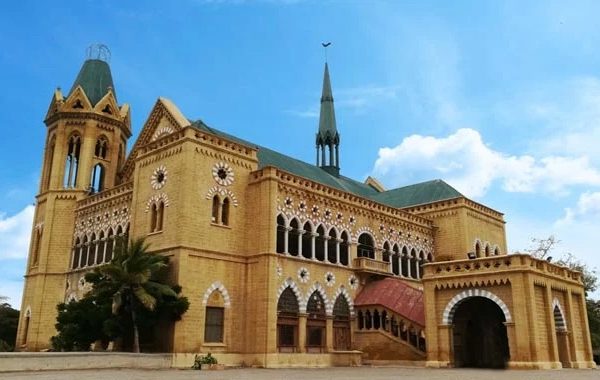Urdu literature is renowned for its rich history and diverse range of literary genres, including poetry, prose, and fiction. Urdu novels, in particular, have gained immense popularity both in Pakistan and abroad. These novels explore a wide range of themes and subjects, from romance and family dramas to social issues and political commentary.
In this blog post, we will explore some of the best Urdu novels that have captured the hearts of readers around the world. We will discuss the themes and motifs that these novels explore, the writing styles of their authors, and the impact they have had on Urdu literature. Among the best Urdu novels that we will explore is Umrao Jaan Ada, Raja Gidh by Bano Qudsia, etc.
By reading and analyzing these novels, we can gain a deeper appreciation for the Urdu language and its contribution to world literature. We can also gain insights into the cultural, social, and political contexts in which these novels were written and the impact they had on their readers. Whether you are a fan of Urdu literature or simply interested in exploring different literary traditions, this blog post will provide a fascinating journey into the world of Urdu novels.
List of 15 Best Novels in Urdu
- Umrao Jaan Ada
- Aag ka Darya
- Zindagi Gulzar Hai
- Manto Nama
- Basti
- Aangan
- Fasad-e-Barr-e-Zaman
- Shahabnama
- Raja Gidh
- Do Gaz Zameen
- La-Hasil
- Peer-e-Kamil
- Abdullah
- Amar Bail
- Zaviya
Umrao Jaan Ada by Mirza Hadi Ruswa
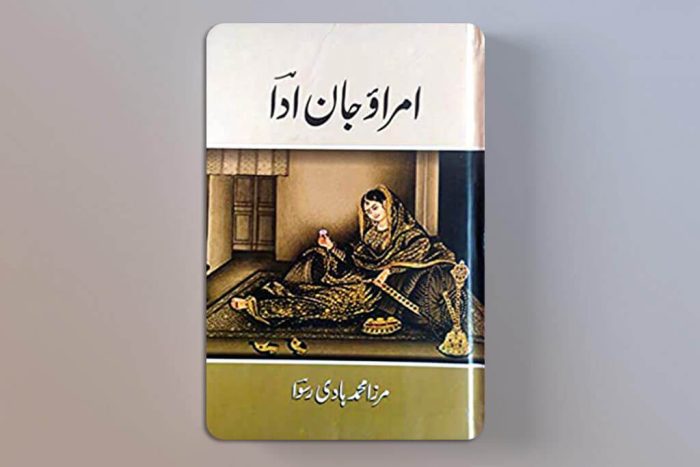
Umrao Jaan Ada is a classic Urdu novel written by Mirza Hadi Ruswa in 1899. The novel is set in the mid-19th century and is a fictional account of the life of a courtesan named Umrao Jaan. The story is narrated by Umrao Jaan herself, who tells her life story and the trials and tribulations she faced as a courtesan.
The novel is known for its beautiful prose and vivid descriptions of Lucknow society in the mid-19th century. The author paints a rich and vibrant picture of the Nawabi culture and the social and cultural norms prevalent at that time. The novel also deals with themes such as love, loss, betrayal, and societal conventions.
One of the unique aspects of the novel is its portrayal of a strong female protagonist in the form of Umrao Jaan. Despite facing many hardships and being a victim of circumstances, Umrao Jaan remains resilient and determined to live her life on her own terms. The novel also explores the themes of identity and self-discovery, as Umrao Jaan struggles to reconcile her own desires with the societal expectations placed upon her.
Our Thoughts
Umrao Jaan Ada is a masterpiece of Urdu literature and a must-read for anyone interested in exploring the rich cultural heritage of the subcontinent.
Aag ka Darya by Qurratulain Hyder
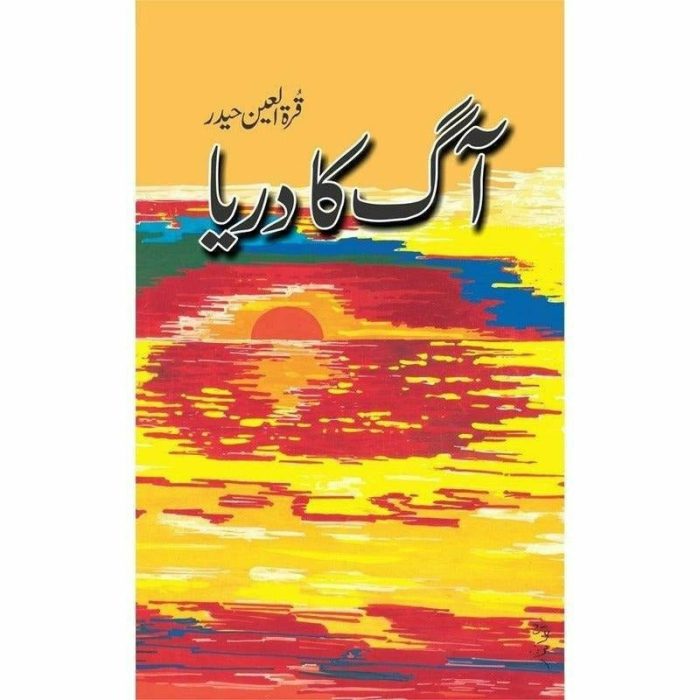
Aag ka Darya is a critically acclaimed novel by Qurratulain Hyder, considered one of the greatest Urdu writers of the 20th century. The novel was first published in 1959 and is a magnum opus of Urdu literature, spanning over 2000 years of history.
The novel is divided into four parts, each set in a different time period: the ancient Indus Valley Civilization, the Islamic invasion of India in the 11th century, the Indian Mutiny of 1857, and the Partition of India in 1947. The characters in each part are linked through their experiences of migration and displacement, which is a recurring theme throughout the novel.
The novel is known for its intricate and lyrical language, blending together elements of history, mythology, and philosophy. The characters are deeply human and their struggles and emotions are explored with great depth and sensitivity. Hyder’s writing is celebrated for its experimental style, with shifts in perspective, time, and space that challenge traditional narrative structures.
Our Thoughts
Aag ka Darya is a masterful work of literature that explores the complex and interconnected histories of South Asia. It has been translated into several languages and remains an important cultural and literary landmark in Urdu literature.
Zindagi Gulzar Hai by Umera Ahmed (Best romantic novels in urdu)
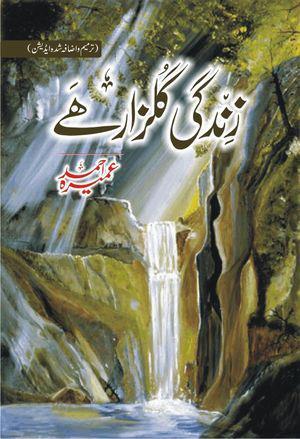
Zindagi Gulzar Hai is a popular novel written by Umera Ahmed, a renowned Pakistani novelist, and screenwriter. The story revolves around the life of Kashaf Murtaza, a young girl who struggles with financial difficulties and a broken family. Despite facing numerous challenges and societal pressures, Kashaf is determined to achieve her dreams and rise above her circumstances.
The novel is set in modern-day Pakistan and highlights various social and economic issues such as class differences, gender inequality, and the struggle for education. It also explores the themes of family relationships, love, and self-discovery.
Umera Ahmed’s writing style is engaging and relatable, making it easy for readers to connect with the characters and their emotions. The novel has received critical acclaim for its powerful storytelling and realistic portrayal of Pakistani society.
In 2012, the novel was adapted into a popular television drama series of the same name, starring Sanam Saeed and Fawad Khan in the lead roles. The drama was a massive success and helped bring the story and its message to a wider audience. Overall, Zindagi Gulzar Hai is a must-read for anyone interested in contemporary Pakistani literature and social issues.
Manto Nama by Saadat Hasan Manto (Best short novels in urdu)
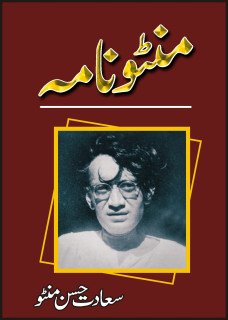
Manto Nama is a collection of short stories and essays by the renowned Urdu writer Saadat Hasan Manto. The book was published posthumously and contains some of his best-known works. Manto was known for his bold and often controversial writing style, and Manto Nama is no exception.
The collection includes stories that deal with a wide range of topics, from the Partition of India to prostitution, from social injustice to human suffering. One of Manto’s most famous stories, Toba Tek Singh, is included in this collection. This story is a poignant commentary on the madness and senselessness of the Partition, as it depicts the mental breakdown of an inmate in a mental asylum who is unable to comprehend the idea of being forced to move from one country to another.
The essays in Manto Nama are equally powerful, as Manto wrote about his experiences as a writer, the challenges he faced, and the social and political climate of his time. Manto was often critical of the society he lived in and used his writing as a means of social commentary.
Our Thoughts
Manto Nama is a masterpiece of Urdu literature that showcases Manto’s incredible talent and fearless writing style. The collection continues to be celebrated today for its insights into human nature and the complexities of society.
Basti by Intizar Hussain
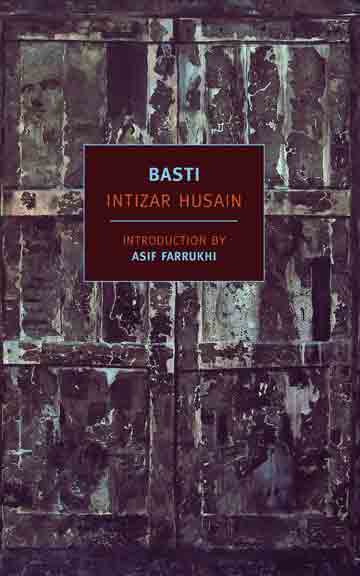
Basti is a novel written by Intizar Hussain, one of the most renowned writers of Urdu literature. It was first published in 1979 and is considered a masterpiece of Urdu fiction. The novel is set in the city of Lahore and explores the political and social changes that occurred in Pakistan after the Partition of India in 1947.
The story revolves around Zakir, a young boy who grows up in a middle-class family in pre-Partition India. The novel begins with his childhood memories of Lahore and his family’s struggle to adjust to the changing times. As Zakir grows older, he becomes more aware of the political situation in the country and becomes involved in leftist politics.
The novel is not only a story of a single character, but it also reflects the changing social and political landscape of Pakistan. It highlights the struggles of ordinary people during a time of upheaval and change.
Our Thoughts
Hussain’s prose is highly evocative and poetic, and he uses language to paint vivid pictures of Lahore and its people. The novel is known for its complex structure, which moves back and forth in time, and for its use of metaphor and symbolism.
Basti has been widely acclaimed as one of the greatest works of Urdu literature. It has been translated into English and other languages, and has won several awards, including the prestigious Akhtarul Iman Award.
Aangan by Khadija Mastoor
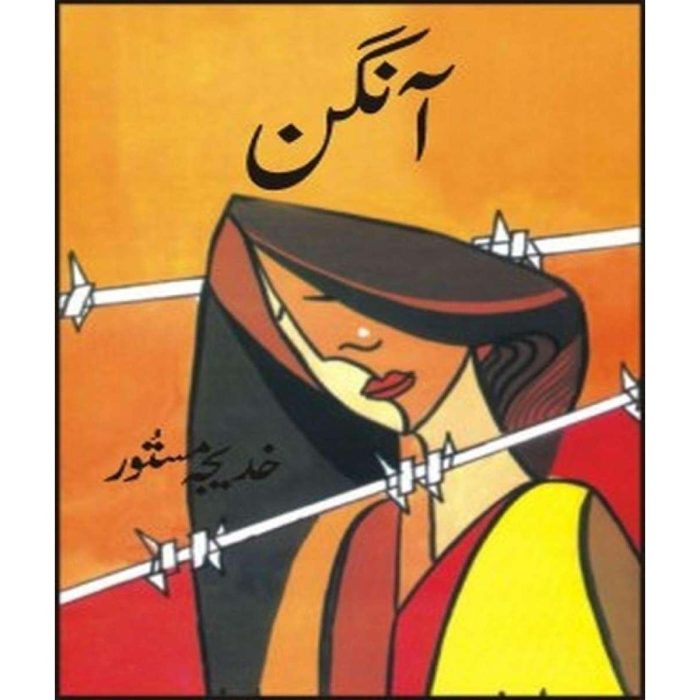
Aangan is a novel written by Khadija Mastoor, which was published in 1962. The novel is set in the pre-partition era and revolves around a Muslim family living in the walled city of Lahore. The story is told through the perspective of Aliya, the youngest daughter of the family, and portrays the struggles of the women of the household in a patriarchal society.
The novel explores the themes of love, marriage, family dynamics, and social norms. It highlights the differences between the traditional and modern ways of life and how they clash with each other. The portrayal of the characters is realistic and relatable, making the readers invested in their stories.
One of the major themes of the novel is the struggle for identity and self-discovery. Aliya, the protagonist, is a young woman who wants to break free from the traditional norms and expectations of her family and society. She is constantly at odds with her conservative mother and is drawn toward the progressive ideas of her brother’s friend Jamil.
Our Thoughts
Aangan is a powerful portrayal of the challenges faced by women in a traditional society and their struggle for agency and independence. The novel has been widely acclaimed for its realistic portrayal of characters and the themes it explores. It is considered to be a classic of Urdu literature and a must-read for anyone interested in exploring the social and cultural history of Pakistan.
Shahabnama by Qudratullah Shahab
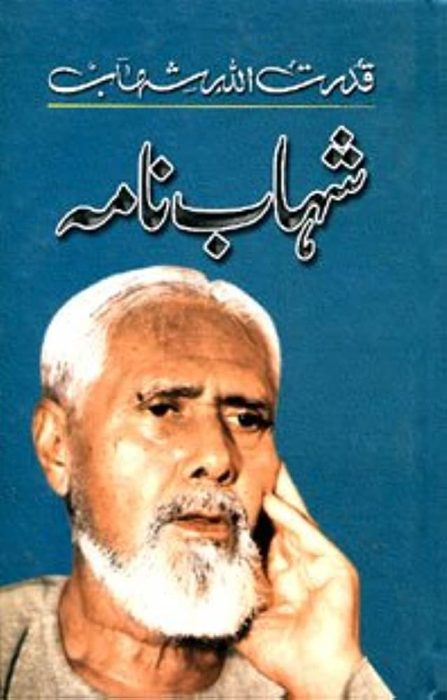
Shahabnama is an autobiographical book by Qudratullah Shahab, a renowned civil servant and writer of Pakistan. The book is a unique account of the author’s personal and professional life, spanning over several decades, and is widely regarded as a masterpiece of Urdu literature.
The book is divided into three parts, with each part reflecting on a different phase of the author’s life. The first part titled Aik Muhabbat So Afsanay (A Love Story with a Hundred Tales) narrates Shahab’s personal life, including his childhood memories, love affairs, and marriage. The second part, Shahab Nama, recounts the author’s professional life, including his experiences as a civil servant, his interactions with various politicians and leaders, and his observations about the society and culture of Pakistan. The third and final part, the Last Phase, describes Shahab’s spiritual journey and his encounters with Sufi saints.
Our Thoughts
The book is known for its vivid and poetic language and its honest portrayal of the author’s thoughts and feelings. It also offers a unique perspective on the political and social history of Pakistan and sheds light on the country’s cultural and literary traditions. Shahabnama has been widely acclaimed by critics and readers alike and is considered a must-read for anyone interested in Urdu literature, Pakistani history, and the art of memoir writing.
Raja Gidh by Bano Qudsia
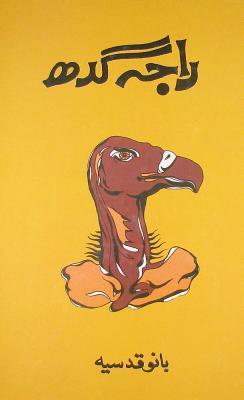
Raja Gidh is a novel written by Bano Qudsia and published in 1981. The story revolves around the concept of love, its various dimensions, and its impact on individuals. The main characters of the novel are two young people, Seemin and Aftab, who come from different socio-economic backgrounds. Seemin is from a well-off family and has a strong faith in God, while Aftab is from a lower-middle-class family and is a rationalist who does not believe in religion.
The novel explores the complexities of their relationship and the conflict between their different belief systems. It also delves into the theme of materialism and how it can lead to spiritual emptiness. The title of the novel, Raja Gidh, refers to a vulture, which is used as a metaphor for the materialistic and self-centered society in which the story is set.
Our Thoughts
Bano Qudsia’s writing style is known for its depth and thoughtfulness, and Raja Gidh is no exception. The novel is a powerful commentary on society and the human condition, and its exploration of love and spirituality continues to resonate with readers today.
Do Gaz Zameen by Abdullah Hussein
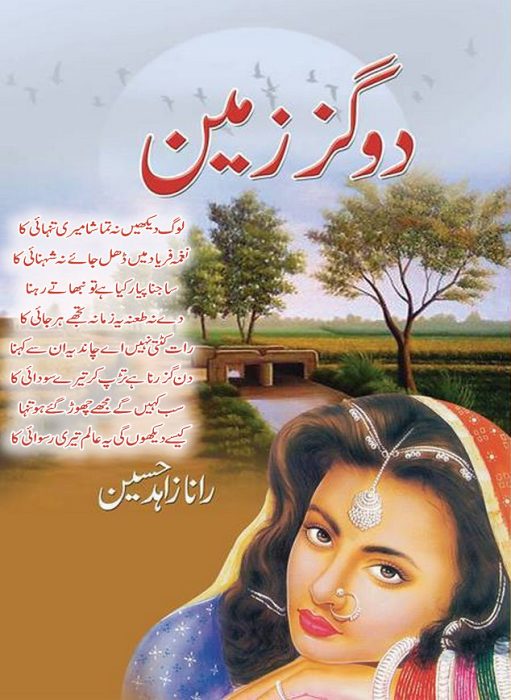
Do Gaz Zameen is a landmark novel in the Urdu language and is widely considered to be one of the best works of fiction in the language. The novel tells the story of a young man named Salim who grows up in pre-Partition India and becomes involved in the political and social upheavals of the time.
One of the key themes of the novel is the struggle for identity in a rapidly changing world. Salim, like many other characters in the novel, is torn between his desire to hold on to the traditions of his past and his longing for a more modern and cosmopolitan future. This struggle is mirrored in the larger social and political changes taking place in India at the time, as the country moves towards independence and the end of British colonial rule.
Hussein’s writing is marked by a deep sensitivity to the human experience and an ability to convey complex emotions and ideas through his characters’ inner monologues and interactions with each other. His prose is often described as spare and elegant, with a keen eye for detail and a subtle use of metaphor and symbolism.
Our Thoughts
Do Gaz Zameen is a powerful and thought-provoking novel that continues to resonate with readers today. Its exploration of themes such as identity, social justice, and political upheaval make it a must-read for anyone interested in Urdu literature or South Asian history and culture.
La-Hasil by Umerah Ahmed
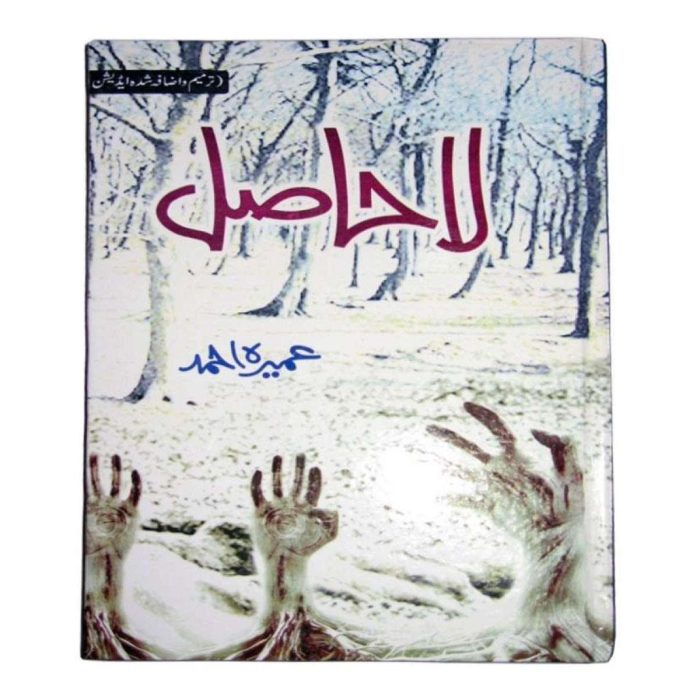
La-Hasil is a thought-provoking novel by Umera Ahmed that explores themes of self-discovery, identity, and spirituality. The story revolves around two central characters, Dr. Iffat and her daughter Momina, who have different perspectives on life.
Dr. Iffat is a successful gynecologist who is an agnostic and believes that the world is a place of survival of the fittest. She does not believe in the concept of destiny and holds a negative perception of the world. On the other hand, Momina is a young, innocent girl who is a firm believer in God and destiny. She is curious to explore the true meaning of life and looks up to her mother for guidance.
The novel is set in the backdrop of Pakistan, and the story unfolds through the perspectives of different characters. The narrative highlights the journey of Momina, who faces various challenges and obstacles in her quest for self-discovery. She seeks answers to questions about love, faith, and identity, and the story beautifully depicts how her spiritual journey helps her find inner peace and fulfillment.
Our Thoughts
La-Hasil is an emotionally charged novel that explores complex themes of human nature and spirituality. The characters are well-developed and relatable, and the story is thought-provoking and engaging. Umera Ahmed’s writing style is poetic and powerful, and the novel has received critical acclaim for its depth and honesty.
Peer-e-Kamil by Umera Ahmad
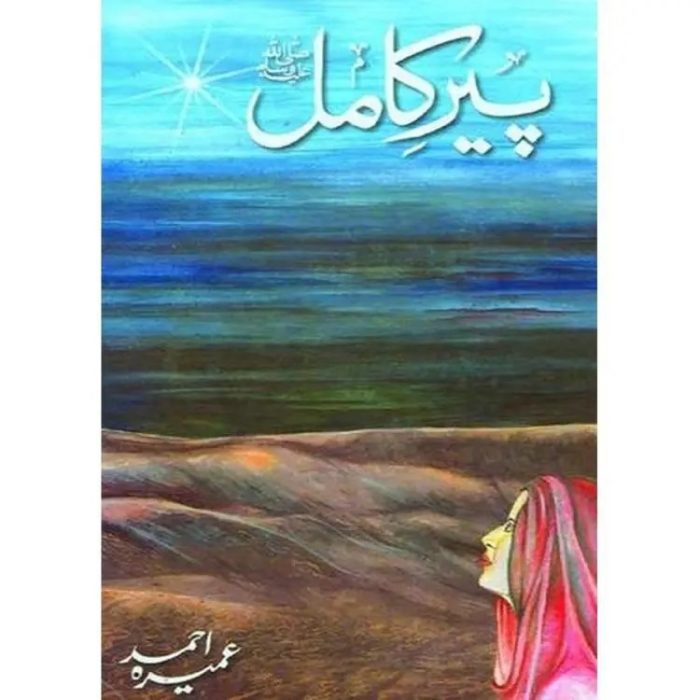
Peer-e-Kamil by Umera Ahmad is a spiritual novel that explores the journey of a young woman named Imama Hashim, who is searching for the purpose of her life. The novel is centered around the theme of Sufism and spirituality, as Imama seeks guidance and enlightenment from a spiritual mentor named Salaar Sikandar.
The novel begins with Imama’s struggles and challenges as a young woman who is torn between her family’s expectations and her own desires for personal fulfillment. She is introduced to Salaar, who is known to possess a deep understanding of spirituality and religion, and gradually begins to understand the meaning of life through his teachings.
Throughout the novel, Umera Ahmad highlights the importance of spirituality and the journey toward enlightenment. The characters in the novel experience a transformation as they gain a deeper understanding of themselves and their place in the world.
The novel is notable for its beautiful prose and poetic language, which captures the essence of Sufism and spirituality. It also touches on issues such as class differences, materialism, and the challenges faced by young women in society.
Our Thoughts
Peer-e-Kamil is a thought-provoking and inspirational novel that encourages readers to reflect on their own spiritual journeys and the meaning of life. It has been widely acclaimed by readers and critics alike and is considered one of Umera Ahmad’s most significant works.
Abdullah by Hashim Nadeem
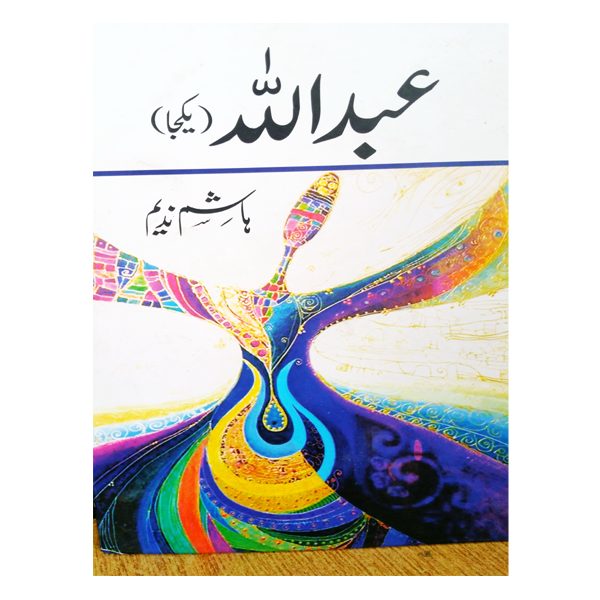
Abdullah is a novel by Hashim Nadeem that was published in 2009. The story revolves around the life of a young boy named Abdullah who is born into a poor family in Pakistan. Despite the struggles he faces early on in life, Abdullah is determined to succeed and make a name for himself.
The novel explores various themes including love, sacrifice, and the struggle for success. It highlights the importance of hard work, determination, and perseverance in achieving one’s goals. The story is also a reflection on the cultural and social norms of Pakistani society, particularly the role of family and the constraints that can come with it.
The narrative style of the novel is gripping, with the author using various techniques such as flashbacks and parallel narratives to keep the reader engaged. The character of Abdullah is well-developed, and the reader is taken on a journey through his life as he overcomes obstacles and achieves his dreams.
Our Thoughts
Abdullah is a powerful novel that explores important themes and provides a thought-provoking commentary on Pakistani society. It is well-written and engaging, making it a must-read for fans of Urdu literature.
Amar Bail by Umera Ahmed
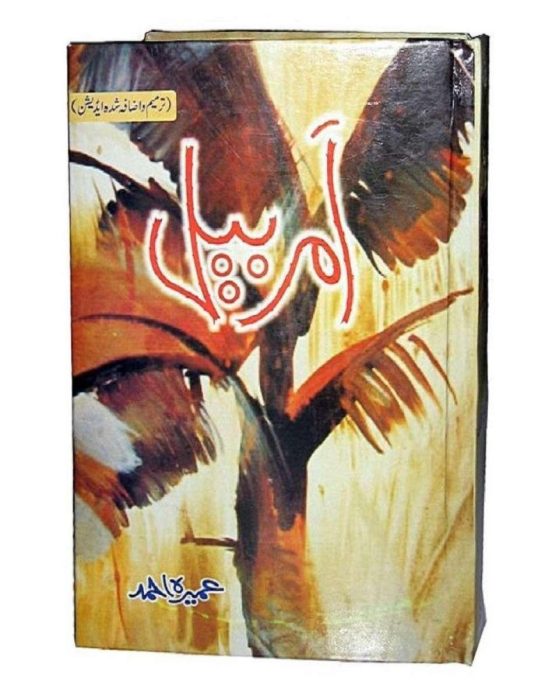
Amar Bail is a novel by Umera Ahmed, one of the most popular and celebrated Pakistani authors. The novel explores the complex themes of love, loss, betrayal, and redemption through the story of two main characters, Umar Jehangir and Aleezay Sikandar.
Umar Jehangir is a handsome and intelligent young man from a wealthy family who falls in love with Aleezay, a beautiful and innocent girl from a middle-class background. Despite their different social statuses, the two become friends and Umar begins to help Aleezay financially and emotionally. However, their relationship takes a dark turn when Aleezay is forced to marry someone else against her will, leaving Umar heartbroken and spiraling into a cycle of self-destruction.
Throughout the novel, Umera Ahmed explores the theme of unrequited love and the destructive consequences it can have. She also delves into the class divides in Pakistani society and the challenges faced by those who attempt to bridge them.
Our Thoughts
Amar Bail is a powerful and thought-provoking novel that challenges readers to consider the complexities of human relationships and the societal forces that shape them.
Zaviya by Ashfaq Ahmed

Zaviya is a collection of essays written by renowned Pakistani author and philosopher Ashfaq Ahmed. The book was first published in 1982 and has since become a classic of Urdu literature.
The essays in Zaviya cover a wide range of topics, from philosophy and spirituality to social issues and human behavior. Ashfaq Ahmed’s writing style is highly engaging and thought-provoking, and he uses a combination of personal anecdotes, literary references, and philosophical concepts to explore his ideas.
One of the most famous essays in Zaviya is “Bandagi Nama,” which explores the concept of devotion and the relationship between man and God. In this essay, Ashfaq Ahmed encourages readers to question their understanding of religion and spirituality and to seek a deeper, more personal connection with the divine.
Another notable essay in Zaviya is “Ghairat,” which explores the concept of honor and the role it plays in Pakistani society. In this essay, Ashfaq Ahmed argues that honor is often used as an excuse for violence and intolerance, and that true honor lies in treating others with respect and compassion.
Our Thoughts
Zaviya is a highly respected and influential work of Urdu literature that continues to inspire readers today with its timeless wisdom and thought-provoking insights.
Final Thoughts on Best Novels in Urdu
To sum up, Urdu literature boasts a rich collection of novels that are both entertaining and enlightening. The novels mentioned in this blog post are some of the best Urdu novels of all time, with compelling storylines, strong character development, and thought-provoking themes. From classics like “Umrao Jaan Ada” to modern works like “Zindagi Gulzar Hai” there is something for every reader to enjoy. These novels have not only entertained readers for generations but have also helped shape and reflect the culture and society of Pakistan. Reading these novels is a great way to explore the depth and beauty of Urdu literature and to gain a better understanding of the language and culture of Pakistan.
Also Read:
Faqs on Top 10 Best Novels in Urdu
What is the first Novel of Urdu
The first Urdu novel is “Mirat-ul-Uroos” written by Deputy Nazeer Ahmed. It was published in 1868-1869 and holds the distinction of being the first novel in the Urdu language. “Mirat-ul-Uroos” explores the societal and cultural issues prevalent in 19th-century Muslim society in India, with a particular focus on the lives and experiences of women within the household. This novel holds great significance in Urdu literature as it paved the way for the development of the Urdu novel as a distinct genre.
What are the key themes explored in these novels?
The key themes explored in these novels include love, loss, social injustice, identity, morality, and the human condition.
Who are some of the most celebrated Urdu novelists?
Some of the most celebrated Urdu novelists include Mirza Hadi Ruswa, Qurratulain Hyder, Saadat Hasan Manto, Ismat Chughtai, Bano Qudsia, Umera Ahmed, and Musharraf Ali Farooqi.
What is the significance of Urdu novels in Pakistani literature?
Urdu novels are a significant component of Pakistani literature, as they have played a key role in shaping the cultural identity and literary traditions of the country.
Are translations of these urdu novels available in other languages?
Yes, translations of many of these novels are available in other languages, including English, Hindi, and Arabic.
What is the impact of these novels on contemporary Urdu literature?
These novels have had a lasting impact on contemporary Urdu literature, as they continue to inspire and influence new generations of Urdu writers and readers.


![List Public Libraries in Islamabad [Book Lovers Paradise]](https://mobizilla.pk/wp-content/uploads/2023/04/NYC_-_New_York_City_Library_-_1723-600x400.jpg)


